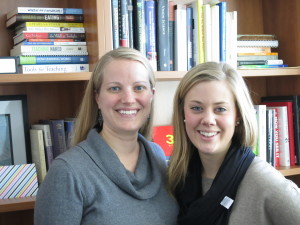Hey everyone!
For those of you who are just joining us, welcome to the psychological science blog and for those returning, welcome back. I had the pleasure of joining Dr. Lauren Hecht-Schroeder’s First Term Seminar class on November 19 to discuss the complexities of the Animal Mind. I was asked to join this class following the viewing of “Blackfish”, the documentary discussing the controversy behind Sea World’s housing of Orcas.
I graduated in 2013 from Gustavus with Biology and Psychological Science majors. However, this story begins the summer between my junior and senior year. I applied and was accepted into the Minnesota Zoo’s aquariums internship program, where I worked with hundreds of different marine animal species. The day after graduation, I furthered my journey in the marine animal world by working at two aquariums; the New England Aquarium in Boston, Massachusetts and the John G. Shedd Aquarium in Chicago, Illinois. These facilities were where I began working directly with marine mammals. Hence Lauren’s request to have me come discuss the documentaries controversies and help answer the many questions raised in its filming.
Due to hard work, dedication, and the assistance of great educators, I have had the opportunity to feed a Pacific White Sided Dolphin, to be kissed by a California Sea Lion, to study a one and a half year old Beluga Whale calf, to paint a picture with an Atlantic Harbor Seal, to watch a rescued Northern Fur Seal pup from the coastal waters of Alaska thrive with other members of its species in an aquarium setting, and to personally witness the benefits of zoos and aquariums. With the help of Gustavus, I was able to pursue this life-long dream.
I may have worked in a controversial field, but many of us do. With the help of evidence and personal experience, we can find solutions to the controversy. Controversy is meant to be studied and questioned. When you don’t have the answer, look to someone who might. And even then, it may remain confusing. That doesn’t mean you should stop questioning it.
Warm regards,
Kimberly Clayton
Gustavus Adolphus College ’13
Biology and Psychological Science Majors
